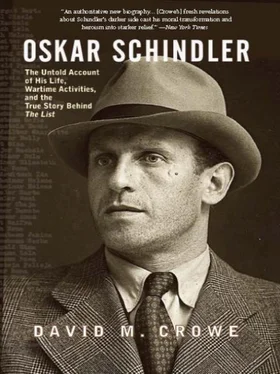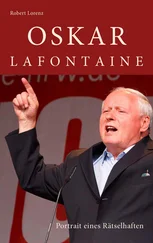Hours later, Canaris received more information about Leutnant Herzner’s activities. At 3:55 A.M. on August 26, Herzner’s unit was sent to the Eighth Army, which was part of Army Group South; this was the first official dispatch of World War II. It reported that it had taken nearby Mosty u Jablunkova station but had failed to take the Jablunkov tunnel. Herzner’s squad then captured a locomotive and tried to enter the tunnel, but the Poles repelled this effort as well. The Abwehr team, which was now trapped behind Polish lines, was ordered to fight its way to the Slovak border. It met stiff resistance from Polish police forces, who now tried to block the German team’s way out of Poland. By early afternoon, Herzner’s unit remained under heavy Polish fire as it tried to move across the Slovak border in the Raková-Madca region. Just before it entered Slovak territory, General Keitel ordered Herzner to remain in Poland. 68
Hitler had never intended to halt his invasion of Poland; instead, he delayed his assault for a few days to convince the British to abandon their guarantees to Poland and pressure Mussolini to reconsider his position about joining Hitler in war. By August 28, Hitler had decided to invade Poland on September 1. 69
On the afternoon of August 31, 1939, the special Abwehr, SS, and SD units that were to initiate the mock attacks were given the code words Grossmutter gestorben (Grandmother is dead). This was the signal for their final moves into Poland. A stunned Admiral Canaris, who received his orders for the initial assaults at 5:30 P.M, broke down and cried. For Canaris, war meant the end of Germany. 70Two and a half hours later, Germans dressed in Polish uniforms fired shots across the Polish border and left the dead prisoners as “evidence” of Polish aggression. Another group under SS-Sturmbannführer Alfred Naujocks attacked and captured the radio station at Gleiwitz. The phony “Polish” occupiers then announced, in Polish, an attack on Germany. Hitler now had his justification for war. 71
The following day, the Völkischer Beobachter informed the German people that Polish rebels had moved into German territory and Adolf Hitler told the Reichstag that the Reich would now respond to fourteen “border incidents” of the previous night. The reality was quite different. Hitler had signed the final directive for the attack on Poland at noon on August 31. Seventeen hours later, five German armies moved into Poland, preceded by several Abwehr commando squads. Over the next few days, Hitler rejected the demands of Britain and France to withdraw as a prelude to negotiations. On September 3, London and Paris declared war on the Third Reich. By the time Soviet forces, after considerable German prodding, began to occupy their portion of eastern Poland, the Wehrmacht had almost completed its conquest of Poland and the destruction of Poland’s once proud military forces. Though some Polish units were able to escape into neutral territory, the Germans were able to defeat those that remained in Poland by October 6. 72
Kraków and the Early Months of the German Occupation
Kraków, Poland, would be Oskar Schindler’s home from 1939 to 1944. According to Emilie, he “fell in love with the bustling life and beauty of the city and did not want to leave; he was more faithful to it than to many of his women, certainly more than to me.” Kraków was also one of the first major Polish cities taken by the Wehrmacht in September 1939. Two German armies, Army Group North under General Fedor von Bock and Army Group South under Gerd von Runstedt invaded Poland in the early morning hours of September 1, 1939. Runstedt’s Fourteenth Army, operating out of Slovakia, was responsible for taking southern Poland, particularly the fortified city of Lvov. The Fourteenth Army was also to stop Polish units from moving into the safety of Hungary and Romania. In the first hours of combat, units of the Fourteenth Army took the difficult Jablunkov Pass from its Polish defenders. That evening, the force of the German attack saw the disorganized Polish Kraków Army flee in the face of the German assault. By September 5, the Fourteenth Army was on the outskirts of Kraków, which surrendered the next day. It would be another month before German forces completed the conquest of Poland. 73
Five weeks after Kraków surrendered to the Germans, Oskar Schindler made the three-hour trip from Mährish Ostrau to Kraków to explore the possibility of resuming his business career. When he arrived in Kraków, Abwehr officers had their hands full dealing with the fallout from defunct German plans to initiate a revolt in those parts of Poland and the Soviet Union with large Ukrainian populations. On September 19, Canaris had personally asked Oberst Erwin Lahousen, the head of Abwehr II, to set up operations in Kraków to deal with the large influx of Ukrainians fleeing Soviet troops, who had just moved into their occupation zone in Poland. Three and a half weeks earlier, Moscow and Berlin had signed the Nazi-Soviet nonaggression pact and a secret accord that divided Poland almost equally between both countries. 74
For several years, Canaris and other Abwehr leaders had played with the idea of stirring up nationalist sentiment among the large Ukrainian minority in Poland and, at the opportune moment, uniting Ukrainians in Poland and the Soviet Union into a pro-Nazi Greater Ukrainian state. The Nazi-Soviet accord dashed hopes that such a state would come into existence. 75At German prodding, the Soviet Union, which had just concluded an armistice with Japan, ending a four-month war on the Mongolian-Manchurian border, sent the Red Army to occupy its treaty zone in Poland. Vladimir Potemkin, the vice commissar of foreign affairs, told the Polish ambassador to Moscow, Waclaw Grzybowski, that Stalin did so to protect the Ukrainians and Belorussians in Poland. 76
Most of Poland’s 4.4 million Ukrainians (1931 census) were now trapped in Stalin’s new Polish territory, and more than 0.5 million lived in German-occupied Poland. During the next year, about 20,000 to 30,000 Ukrainians left Soviet Poland for the German zone. Soon after the war began, Abwehr set up a relief organization in Kraków to help the Ukrainian refugees. For the rest of World War II, Kraków would be a center of Ukrainian nationalist activity that was officially encouraged by the Germans. Many of the guards who oversaw Oskar Schindler’s workers in Kraków and Brünnlitz were drawn from this large Ukrainian emigré community. 77
The German invasion and conquest of Poland was brutal. According to Ian Kreshaw, occupied Poland was to become an “experimental playground” for the SS and the Nazi Party, both of which would play a key role in ruling Poland after it was conquered. Hitler regarded ethnic Poles as that “dreadful [racial] material” who stood in the way of his dreams of a greater Aryan-pure Germany. On August 22, Hitler told his top generals to “act brutally” towards all Poles. The Führer viewed Poland’s Jews “as the most horrible thing imaginable.” Hitler added that the aim of war was physically to annihilate the enemy, in this case the Poles. His special Einsatz squads had “orders mercilessly and pitilessly to send men, women, and children of Polish extraction and language to their death.” 78
Consequently, during the six years the Germans occupied Poland, they waged two wars against the Polish population: one against Polish Jews and one against non-Jewish Poles. Once in Poland, the Germans were determined to destroy the heart of the intellectual leadership or core of the Polish people and isolate the Jews from occupied Polish society. Specially trained Einsatzgruppen (special action groups) made up of 2,700 men from the SD, Sipo, and the SS were sent into Poland to combat so-called hostile elements. Initially used in the takeover of Austria in 1938 (the Anschluß ) to establish police security, over time the Einsatzgruppen expanded their mission to include the neutralization or eradication of all societal elements deemed racially or physically dangerous to the German control of Bohemia, Moravia, Poland, and later, the Soviet Union. In 1941, the Einsatzgruppen became the principal killing squads the Germans used in their effort to mass murder all Jews in the Soviet Union. 79
Читать дальше












